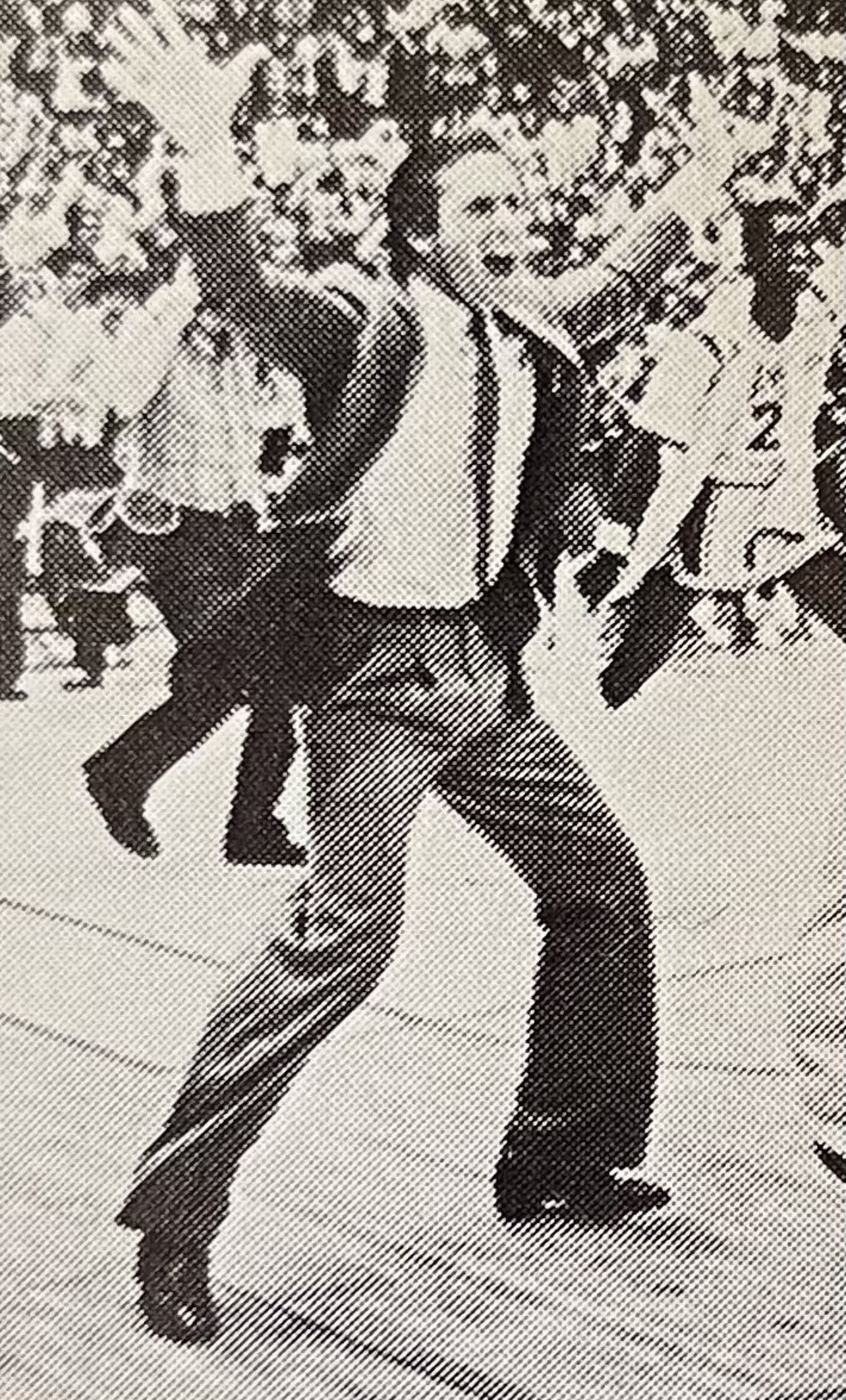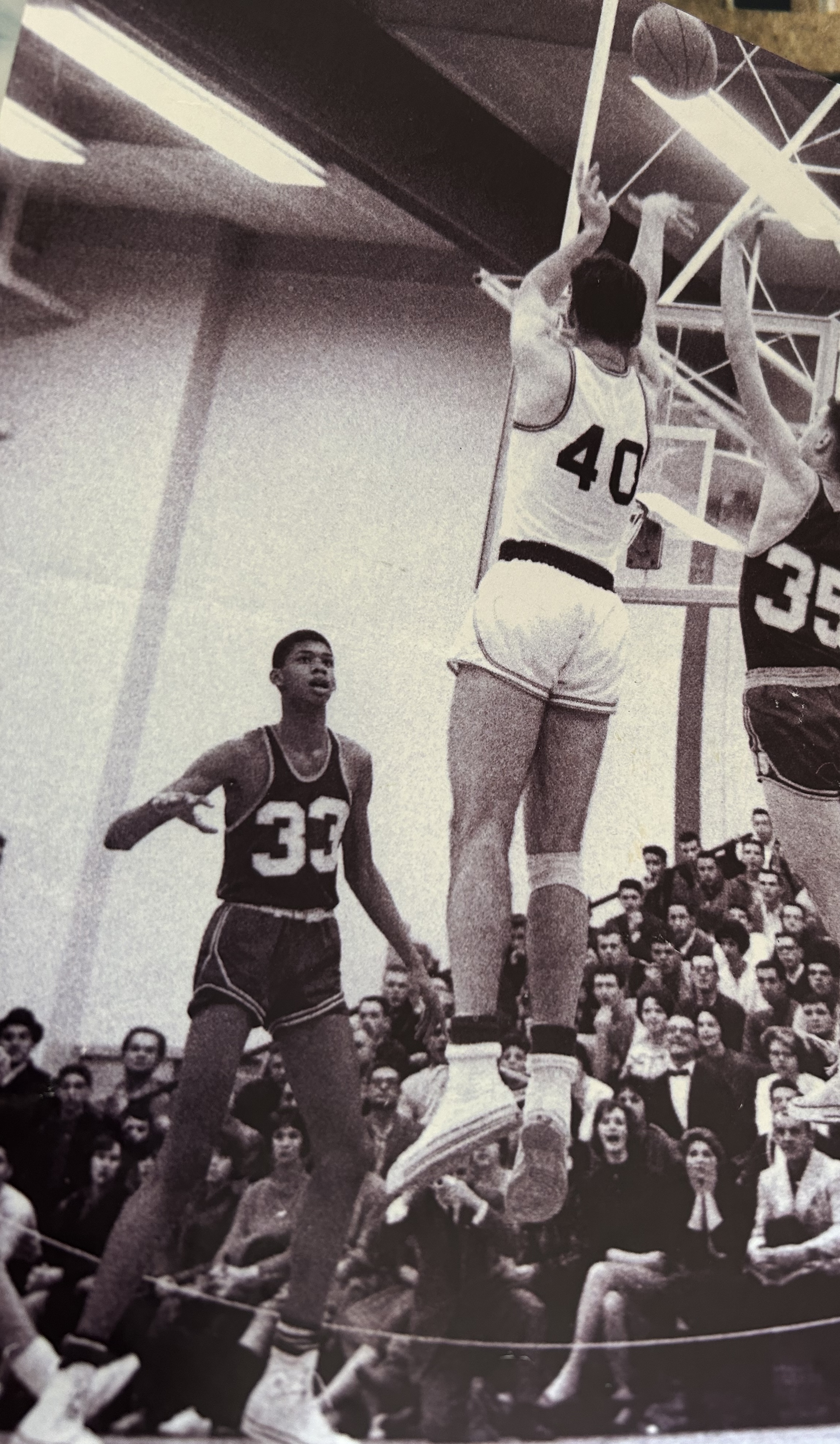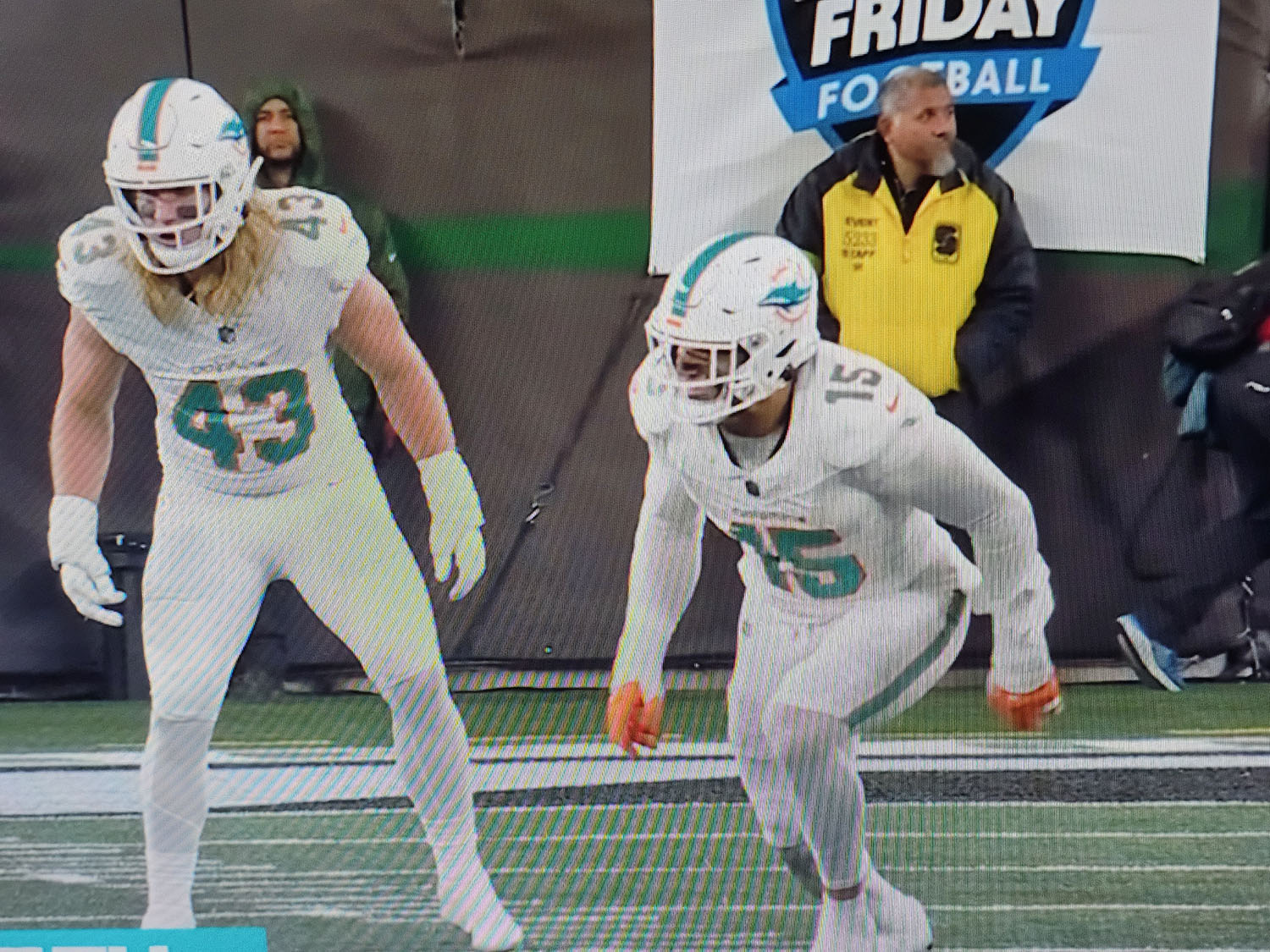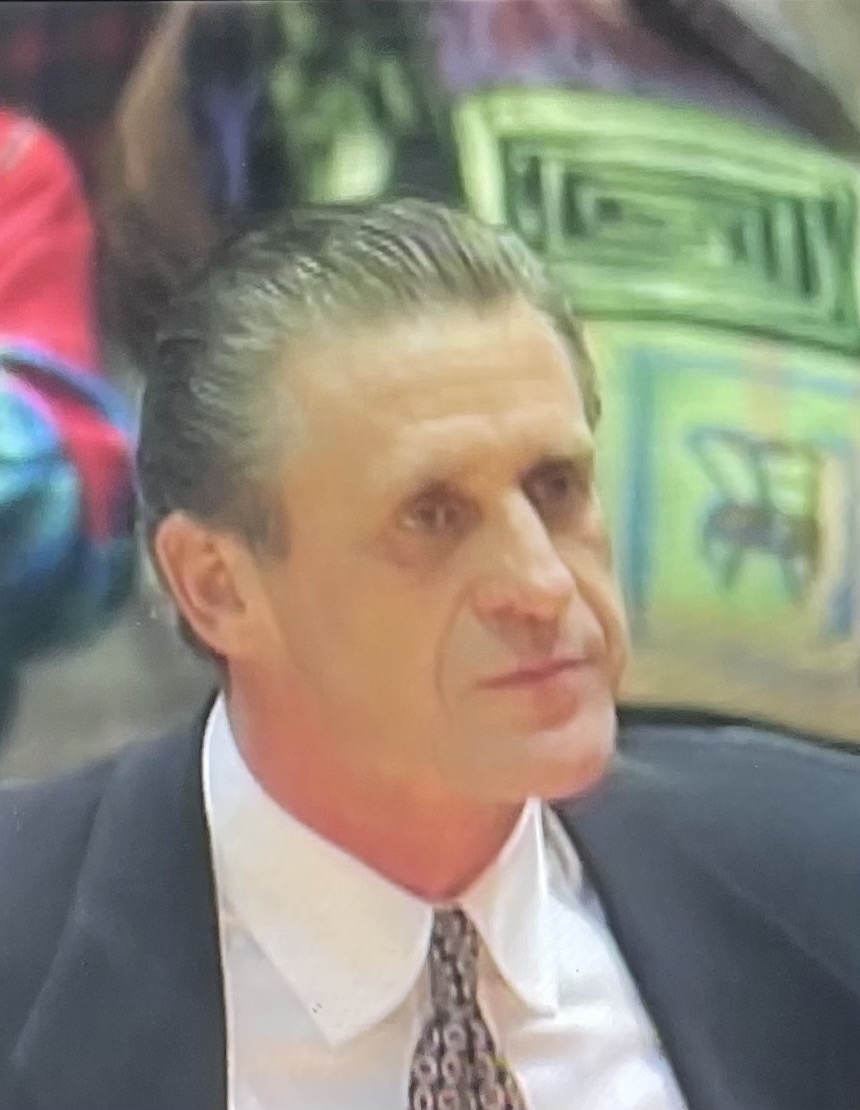The Pat Riley series, part 1: Rise of the Godfather
Pat Riley’s lust for rings and trophies has annoyed, hurt and inspired others while elevating three separate NBA teams over the last 42 years. The Los Angeles Lakers, New York Knicks, and Miami Heat had some of their best days with him in charge, but his grand accomplishments could have gone unrecognized at the coaching level if not for a tragic bike wreck to Jack McKinney.
“In a way,” Riley responded to Charlie Rose in 1993 when asked if he accidentally stumbled into coaching. “I used to [do] a lot of clinics when I was a player, and I felt very good. I’d be a guest speaker. I’d go to basketball clinics, there’d be a couple hundred kids…”
Yet his work as a player, initially, wasn’t enough to buy him an opportunity on the sidelines or even access to the team he played for. Before Jack Kent Cooke’s sale of the club to Jerry Buss in 1979, Riley was denied entry into the team lounge filled with former players and other VIPs.
It was a crushing blow to Riley, who had devoted his life to sports, and a humiliation similar to what his father felt when fired after years of tireless work in Minor League Baseball. But seeing that as a child accelerated his understanding that pro sports is a field of specialists not many break into or last in.
Eventually, he would turn into an egomaniacal control freak who was referred to as a “heroic figure” in Dr. Jerry Buss’ Hall of Fame speech. As extensive and impressive as his résumé is- winning as a player, coach, and executive and consistently putting out quality teams, it doesn’t come without stains- getting a player injured, pressuring another to perform hurt, drafting the wrong guys, signing questionable characters and getting cheap with a franchise legend.
But how did he get there?
As a child, getting the snot kicked out of him by neighborhood bullies in Schenectady, New York, then rechallenging them for another whooping at his father’s orders, eased his fears of contact. Learning about life and grammar from his high school coach, Walt Przybylo, a World War Two veteran, transformed him from a rough-riding teen into a trained contributor to a cause.
“We’d go through school, then at 3:15 [pm], we’d go down to practice…we all just sat there and waited,” Riley said to Rose. “He’d come out, and he would start talking about some subject or some experience he had. He’d talk about one of us, [how] he got a letter from the chemistry teacher. And he’d make a point out of it.”
Riley didn’t value Przybylo’s teachings until later in life after he’d left Linton High School, but at his next stop, the University of Kentucky, he met another disciplinarian who would significantly impact his life. That was Adolph Rupp, the coach of the men’s basketball team.
In Rupp’s program, Riley would play as an undersized 6-foot-4 power forward and averaged 18.3 points per game in his last three years (freshman played JV until 1972). He even competed on the all-white players team that lost against the Texas Western Miners, who were all black, in the 1966 National Championship game.
Eventually, Riley was drafted with the seventh pick in 1967 by the San Diego Rockets. Fewer than two months earlier, he’d been picked by the NFL club Dallas Cowboys as a wideout. In his career, outlandish requests would become the norm. Here is where they began: He told Tom Landry, the coach of the Cowboys, that he wasn’t interested in receiver but in playing quarterback, the position held by Don Meredith, an All-Pro the previous year. Riley hadn’t put on the pads since high school.
He reported to Rockets camp and instantly found out how far behind he was competitively with the rest of the NBA because he couldn’t even get the ball across half-court—his time with that team lasted 177 games across three seasons before he wasn’t protected from the Expansion Draft. Now, his player rights belonged to the newly formed Portland Trail Blazers.
Before he showed up in Rip City, he married Christine Rodstrom in the summer of 1970 while $5,000 in debt. That night was also the last time he saw his father, Lee Riley.
During his wedding, he shared a private moment with his pops, expressing his bitterness about being put on an expansion team. There, he was told not to do what his father did- abandon his goals when it seemed hardest. On the drive out, from the backseat of a red Chevrolet Caprice, Lee Riley stuck his head out the window and repeated the message he always had for his family: “Sometime, you got to plant your feet, stand firm and make a point about who you are and what you believe in.”
Apart from some threads, his only possessions at the time were his ‘67 yellow convertible Corvette, seven vinyl records, a king-size bed, and a plastic plant. Next, he was on his way to Portland, but the Trail Blazers, an outfit that wouldn’t play its first game until mid-October, didn’t want him either and traded him to Los Angeles.
When he happily returned to southern California with his wife, he was told by then Lakers general manager Fred Schaus what he needed to do to make the team: keep Jerry West and Jim McMillian in shape by picking them up full court in practice the days after they logged heavy minutes.
With the Lakers, Riley was part of the 1972 championship team (10th in minutes averaged) that included Wilt Chamberlain, Gail Goodrich and West, among others, and won 33 straight games and the city’s first but organization’s sixth.
His playing tenure with the Lakers lasted until two games into the 1975-76 season, but before getting shipped to the Phoenix Suns, Riley got to play with Kareem Abdul-Jabbar.
When his nine-year athletic career concluded, Riley returned again to Los Angeles before getting hired as Chick Hearn’s sidekick during Lakers’ broadcasts. In the meantime, Riley was habitually lounging in the sand, staring at the Pacific Ocean, or engaged in a beach volleyball match with Chamberlain.
As Hearn’s right hand, he provided timely analysis and handed out boarding passes to the players.

********
Fast forward to the 1979-80 season, beginning with the Lakers winning nine of its first 13 matches. Jack McKinney, a five-year NBA assistant with 15 more between high school and college, was the head coach who replaced West. He had experience already for a season with Abdul-Jabbar in 1975, when both were in Milwaukee. His right hand, Paul Westhead, played three years at Saint Joseph’s and was a coach at La Salle University for nine more.
But on an off-day in Palm Springs on Nov. 8, 1979, while on a ride over to play tennis with Westhead, McKinney’s bicycle malfunctioned when he tried to brake, thrusting him forward for a nasty slide on concrete that caused a severe head injury.
The next night, hosting the Denver Nuggets, Westhead took over, and the Lakers won in overtime 126-122. McKinney wasn’t going to come back soon, so within the week, Buss permitted his replacement coach to hire an assistant. He picked Riley, who had no similar relationship with him as he did with his mentor, McKinney.
At first, Riley was indecisive and needed a week to think about jumping from booth to bench. It helped soothe his fears that Hearn allowed it and promised he’d have his gig back when “McKinney returned.” His first game on the bench as a coach was on Nov. 27, 1979, for the team’s trip to Utah. The Lakers, using McKinney’s playbook, won by four points that night and took seven of its next 10. By the All-Star break, it had accumulated a 29-13 record.
While Westhead was in charge and especially early, Riley, being a veteran of the league, helped him understand the dynamics of players at the professional level and paid attention to all the details, even those microscopic. He was also in charge of the Summer League team starting in the 1980 offseason, but Riley also credits Westhead as a “lifetime coach.”
He told Rose in his 1993 interview that Westhead was a disciplined man who he absorbed much from. “You realize just how much you don’t know about coaching and drilling and planning and organization until you’re asked to do it. He taught me a lot in the organizational manner. He gave me a lot of responsibility.”
The Lakers finished that season winning 60 games, stormed through the Playoffs with a 12-4 record, and captured the championship in Game 6 of the Finals in Philadelphia. Magic Johnson famously started at center for an injured Abdul-Jabbar, who watched from his Bel Air home. Buss told the press two days (May 13) after Game 4 that Westhead was keeping the job.
During the celebration, while commissioner Larry O’Brien was handing the trophy to Buss, Riley looked into the CBS camera and assured his wife Christine, plus Abdul-Jabbar and his then-girlfriend Cheryl Pistono, that the party would end in Los Angeles with them.
Euphoria lasted for the summer, but skip ahead to April 1981, when the Lakers’ quest to repeat was derailed by Moses Malone and the Houston Rockets in three games. Throughout the campaign, Westhead implemented his “system,” which deviated from the free-flowing attack used previously, or at least, the results did.
Next year, Westhead insisted on keeping his attack style in place, but the players were unhappy, and the team’s vibes soured. In a game in San Antonio against the Spurs without George Gervin, the Lakers were demolished by 26 points. Johnson wrote about his disappointment in his 1983 memoir (published at age 23) that Spurs were not “not that good.”
But then a five-match winning streak started in Houston, which didn’t squash the unhappiness festering with the unit. During a timeout of a game in Phoenix on Nov. 14, 1981, before Norm Nixon could finish offering his observation on needing more movement, Riley screamed at him that the players were the problem in defense of Westhead’s system.
Four nights later, Johnson undercut his bosses, telling the press he wanted to be traded in the locker room in Utah. He had been venting to his camp about it for weeks but finally spilled it. That night, when the Lakers’ bus transported the players to their hotel, Riley uncharacteristically left Westhead alone in the front row and got his own ride. On the flight to Salt Lake City before the game, Westhead sat by himself, too. Players noted it because they were tight, but not so much anymore.
Within hours of Johnson’s outburst, Buss set up a morning meeting with his two execs, Bill Sharman and Jerry West. The decision to let Westhead go, while the Lakers had won five in a row, was finalized there.
Initially, West was Buss’ choice to succeed Westhead, not Riley. Miscommunication between the two led to an awkward presser where Buss said his squad had an offensive and defensive coach with West and Riley. Then West told the press he would work “for and with” Riley, confusing everyone. But when the circus ended, Riley, at age 36, was in command of the players, with West as a temporary assistant.
Instantly, the intensity of Lakers’ practices increased 100 degrees from amateur-level training sessions, said Michael Cooper, a 12-year former player of Riley’s in Los Angeles to Five Reasons Sports Network.
“Our practices totally changed and they got better,” Cooper said. “They got more defensive oriented… more intense, more detailed on what we wanted to do. We spent a lot of time on our half court defense.”
But the most striking change to the Los Angeles club was that Johnson was comfortable and back to his dazzling tricks.
Riley’s first game as head instructor was a 20-point rout of San Antonio on Nov. 20, 1981. After winning six of its first seven, the Lakers removed the interim tag. The newly empowered coach then inserted Kurt Rambis, a hustling, utility goon at power forward about a month later.
Showtime was back, and Riley was picked to coach the West All-Stars, an honor he would receive eight more times in his career.
Yet, even early in his tenure, he was tough on his guys. In March, after a loss to the Chicago Bulls, Riley held a meeting, to address everyone’s shortcomings. According to Johnson in his memoir, he was toughest on Cooper, telling him, “I don’t know where you get the idea you’re a star because you’re not. You’re just a sub. It’s about time you realized that…”
Riley finished berating Cooper with off-color characterizations. A five-game win streak followed.
In the playoffs, the Lakers went 14-2 and snagged its second title in three seasons over the 76ers, and Riley’s first as head coach, but his third total. His players deployed double teams and blitzes that 76ers forward Julius Erving said were used better than any college team after practice at St. Joseph’s College before Game 5 of the Finals.
During the series, Philadelphia coach Billy Cunningham told the press Los Angeles was playing a zone, which was illegal until 2001 and complained about it repeatedly to referee Darell Garretson.
********
The following season, the Lakers returned to the Finals for another duel with the 76ers, but the East champs had a significant edge. Moses Malone, the reigning back-to-back MVP (previously with Houston), had joined the ‘81 winner, Erving. He also had Abdul-Jabbar’s number. Philadelphia swept Los Angeles to win the title.
Then, in May 1984, the Lakers and Celtics, who had been on a collision course all season, met up for the Finals for the first time since 1969, when Boston prevented Jack Kent Cooke’s balloons from falling after Game 7. The Lakers won the first match in hostile territory and had the second in the bag, but Riley made the biggest coaching mistake of his career at the time, which he’s publicly admitted.
With 18 seconds left in Game 2 of the ‘84 Finals, the Lakers were up 113-111, and Celtics forward Kevin McHale went to the line for a chance to tie. After his first miss, Riley instructed his team to take a timeout and it did following the second brick. Next, James Worthy inbounded to Johnson, who passed back because he was trapped. Worthy then attempted a cross-court feed to Byron Scott that was intercepted by Gerald Henderson for a layup. Boston tied, then won in overtime, later the series in seven outings. In Game 2, LA should have let Boston foul.
Riley and the Lakers wouldn’t avenge defeat until a rematch in next year’s Finals. The Celtics were on record before the series, saying the team they respected the most was the 76ers. Larry Bird, in particular, said nothing gave him greater pleasure than beating Philadelphia.
LA and Boston had the best records in the league, again, and when they met up in the Playoffs, the Celtics flattened them by 34 points. It became famously known as the “Memorial Day Massacre.”
Postgame, Riley said the Celtics were “going on all cylinders.” Privately, he was seething because a role player on Boston’s bench, Scott Wedman, dropped 26 points on an immaculate 11 tries. “Who the fuck is Scott Wedman!?” he screamed at his group, per Jeff Pearlman, author of Showtime: Magic, Kareem, Riley and the Los Angeles Lakers Dynasty of the 1980s.
Aside from Boston’s eighth man (in minutes averaged) torching LA, Abdul-Jabbar’s lack of production was of equal worry. He had 12 points and three rebounds, looking as ancient as his detractors claimed at age 38. On the ride to the arena for Game 2, Riley bucked his rigid methods and allowed Ferdinand Lewis Alcindor Sr., Abdul-Jabbar’s father, to ride on the bus with the Lakers.
One of Riley’s rules was that family members didn’t travel with the team, a common practice in the NBA. Yet, others like Red Auerbach, who coached the Celtics from 1950-66 and was strict too, allowed players’ wives to come along.
Abdul-Jabbar responded with 30 points on 57% shooting with 17 rebounds to tie the series back to LA. In the locker room, Riley said without him, the Lakers were an average team. The group would subsequently earn the title in six, and Abdul-Jabbar won Finals MVP.
During the locker room celebration, Riley was asked about the difference from the previous year. He cited rebounding plus the play of Abdul-Jabbar and Johnson being the equalizers. There he also repeated the last words he heard his father say months before he died. “Some time, we have to plant our feet, stand firm and make a point. And we made that point. We took that parquet floor here, and all the skeletons are cleaned out…”
During the offseasons, he also developed the habit of writing letters to his players about expectations for the upcoming year, per Jeff Pearlman. For someone who would eventually become known as the Godfather, this tactic was the equivalent of a street boss telling his top earners how much dough needed to be brought in.
In 1985-86, the Lakers registered another 60 victories, but Abdul-Jabbar’s decline continued. Then, in the Conference Finals, the Houston Rockets’ twin towers of Akeem Olajuwon and Ralph Sampson were a mismatch for him, plus Rambis at power forward.
That summer, the Lakers drafted A.C. Green and, during the 1986-87 campaign, traded for Mychal Thompson, father of current Warriors guard/forward Klay Thompson, to preserve speed when Abdul-Jabbar sat. Additionally, one of Riley’s important directives was telling Johnson to pick up his scoring. The motivation behind this was lessening the workload on Abdul-Jabbar.
That season, Los Angeles beat Denver, Golden State, and Seattle to return to the Finals for another showdown with the Celtics, the reigning champs who took out Houston the pior year.
The pivotal moment in the series was Game 4 at Boston Garden. Riley’s team came back from down eight points with four minutes left on moves from Cooper, Worthy, Abdul-Jabbar, and Johnson’s baby-hook through the lane to take the lead for the first time since early in the first quarter. The Lakers went up 3-1 in the series that evening. Five nights later, it was closed out in Los Angeles in Game 6.
In the locker room celebrating that one, covered in champagne, holding a handle and with a white towel around his neck like he just stepped out of a prize fight, Riley said the squad was the “best group of guys” he’d ever been around as a coach.
At a pre-media event for the parade, he promised a repeat, which annoyed players, specifically Worthy, because A, he was hungover, and B, he didn’t think that the current achievement was being appreciated enough. “What the fuck did he just say,” Worthy said when recalling events on the Players’ Tribune Knuckleheads Podcast. “You know that’s an automatic target on your back…He knew he had to do something. Not that he was running out of for motivational speeches, but he was getting close.”
Those comments set the stage for the objective in 1987-88. The players took two-week vacations instead of a month and started working out early at the track together, racing each other. In the regular season, the Lakers had its fourth-straight 60-win year (62) with an eight-match advantage over the second-place Nuggets in the West.
In the playoffs, LA made lite work of the Spurs but then engaged in three Game 7s against Utah, Dallas and Detroit. In Game 1 of the Finals, the emerging Pistons, bullies or psychopaths of the court, blasted the Lakers in Los Angeles by a dozen.
In the sixth outing in LA, Detroit held a 3-2 lead, but the Lakers benefitted from one of the all-time lucky breaks thanks to the refs Ed Rush and Hugh Evans. Isiah Thomas had just ripped the hosts in the third quarter for 25 of the Pistons’ 35 points and left in between with a busted ankle but came back. Yet, with 14 seconds left in the game, Detroit’s goon Bill Laimbeer allegedly fouled Abdul-Jabbar’s hook. The refs saw a phantom penalty, but not the big man travel. The Lakers won 103-102.
Detroit lost by three points in Game 7, with Thomas hobbled and only playing 28 minutes. Riley admitted in 2014 that the Pistons were cheated when he said it was a phantom foul.
He and the Lakers maneuvered through a fan-invaded court to the locker room for the party as back-to-back champs- the league’s first since the Celtics in ’68 and ’69. One of the lasting images of CBS’ coverage was him and Johnson embracing for a long hug as champagne poured over their heads for the last time. Yet it wouldn’t be long before Johnson and others within the Lakers grew sick of him.
Part of what’s made Riley successful is that he can’t be satisfied for long. To a group who reached the pinnacle five times over in eight years, his tricks were stale while his ego was out of control.
Naturally, the loaded Lakers, even with Abdul-Jabbar in his final year, registered 57 wins in 1988-89. LA swept through the West Playoffs and before a Finals rematch with the Pistons, Riley wasted Scott in his training camp-style practices. A box-out drill cost the team one of its best perimeter defenders and Johnson’s backcourt partner, who could shoot from distance and pressure the inside, to a hamstring injury called “moderately severe.”
The veteran-filled Lakeshow was a dynasty running near empty, and Riley’s strategy was the equivalent of hitting the gas on the freeway when the “check engine” light turns on.
Strong first and third quarters powered Detroit to a Game 1 win, but Johnson pulled his left hamstring in the third frame of Game 2. He managed five minutes of the next one but was done for the year. The Lakers were swept, and postgame, Riley said Detroit kicked LA’s ass.
Abdul-Jabbar retired that offseason, but that didn’t stop the Lakers from winning 63 outings with Thompson as a starter. But the highs that began in October didn’t last in the Playoffs. The Lakers fell early in round two to the Phoenix Suns in five.
“He had really stretched us thin, as far as practices and getting us hyped up,” Cooper said to FRSN. “It took its toll on us. Guys were like a little leary…”
After winning coach of the year for the first time, the Lakers fired Riley, but Buss let him keep his dignity, publicly saying it was a resignation. His replacement was Mike Dunleavy, a two-year assistant coach with the Bucks.
At the end with the Lakers, Riley, who wasn’t GM, started acting like one, and Johnson was directly involved in the removal, according to retired NBA insider Peter Vecsey.
“He got involved talking about the money they were making, and that pissed them off because it was none of his business,” Vecsey said to 5RSN.
—-
Mateo Mayorga (@MateoMayorga23) is a basketball columnist for the Five Reasons Sports Network. Stay tuned for Part two and three’s release on Tuesday and Wednesday. (Special thank you to Peter Vecsey for sending the cover photo.)



A captivating exploration of Riley evolution from player to coach highlighting the pivotal moments that shaped his legendary career trajectory.
Mobile Phone Repair in Stockton CA